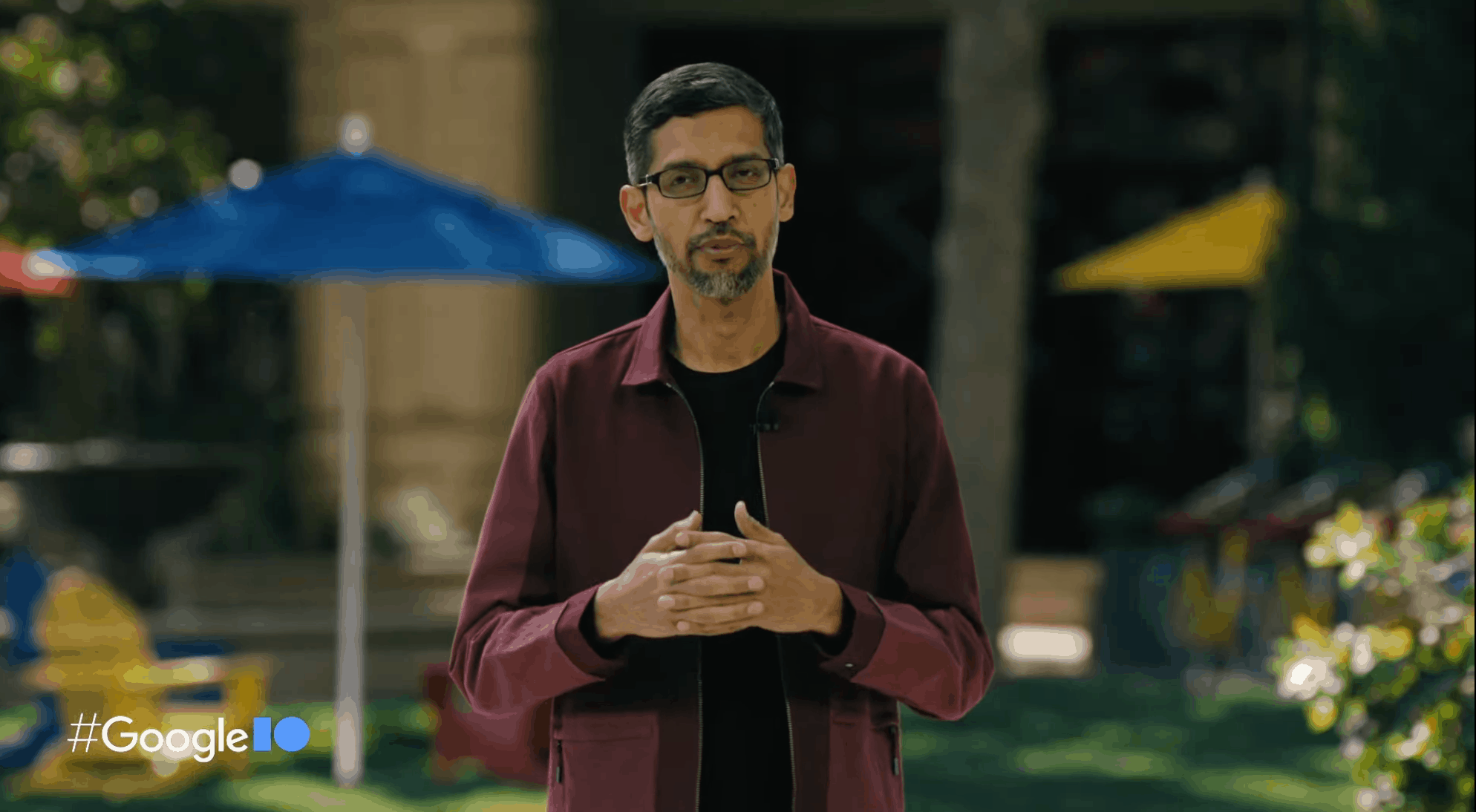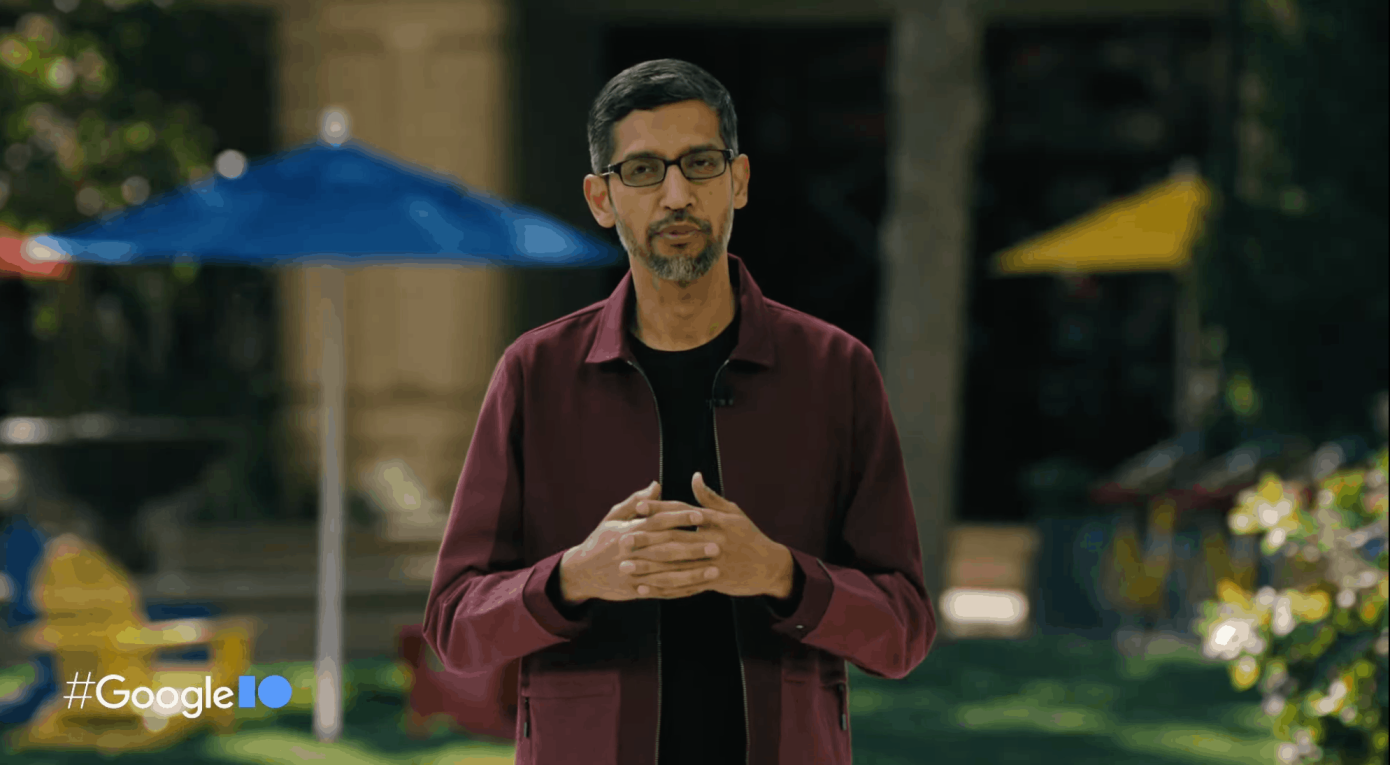AI and the imminent arrival of Donald Trump to the White House are among the hottest topics in the current US tech industry. Google is one of the biggest players in the AI segment, being a pioneer in the heavy integration of AI-powered features in mobile devices. Sundar Pichai, the CEO of Google, has provided insights into the company’s strategy in the AI industry, as well as his outlook on ongoing antitrust lawsuits, the upcoming changes in the US administration, and other related topics.
Google’s CEO speaks out on AI and antitrust lawsuits against the company
During the latest DealBook Summit, Sundar Pichai revealed to The New York Times his position regarding the current situation in the AI segment. The executive began by responding to Satya Nadella, CEO of Microsoft, who said that Google should have been the “default winner” in the industry.
Nadella refers to the fact that Google should have been ahead of everyone else by having access to daily usage and browsing data of millions of people, in addition to having the resources and technology to take advantage of it. However, the competition in the segment is quite tight, with OpenAI taking the lead in certain aspects. Regarding this, Pichai said he “would love to do a side-by-side comparison of Microsoft’s own models and our [Google] models any day, any.” It’s noteworthy that Microsoft’s current AI infrastructure heavily incorporates OpenAI technology.
Continuing on the topic of artificial intelligence, Sundar Pichai has a different view than Sam Altman, CEO of OpenAI. The Google CEO thinks that advances in the segment will slow down a bit next year. However, Google’s search engine “will continue to change profoundly in ’25.” Therefore, it’s possible that Google won’t release as many groundbreaking AI-based innovations in 2025. The company would focus on working on its current products. The Mountain View giant recently launched Gemini 2.0 with impressive capabilities.
In addition to AI, Pichai was asked about the antitrust lawsuits against the firm. However, the executive did not elaborate much in his response. He simply said that he has “deep faith in our [US] judicial system.” Regarding the DOJ’s proposal to break up the company by selling Chrome, Pichai says that he even projected the potential spinoff of some divisions. “Do I expect in a 10-year time frame some of those to be independent public companies? The answer is yes,” he said. However, whatever happens, he will remain in “the mothership,” referring to Google.
Trump’s arrival is “an opportunity“
Google’s CEO sees Donald Trump’s arrival in the White House as “an opportunity.” Pichai has been trying to smooth things over with Trump after a rocky relationship during the presidential campaign. The new US president-elect accused the company of giving prominence to negative news about him and lowering the visibility of positive news.
Recently, Trump reportedly met with Pichai and had also received some calls from him. Plus, Google is among the companies that donated $1 million to Trump’s inauguration fund. Regarding the new president’s impact on the firm’s developments, Google’s CEO believes that there are areas, such as energy, where Trump is “committed to making a difference.” Lately, Google has spent large amounts on power supply plants for AI and data centers.
Pichai believes that Trump’s arrival could help speed up product development at Google.
The impact of AI on jobs and hiring
One of the most controversial issues regarding the use of AI is the potential replacement of humans at workplaces. Recently, Google’s CEO revealed to analysts that AI generates up to 25% of Google’s new code. However, the human factor remains key to the review and certification of code. Google does not see AI as a threat to jobs but quite the opposite. The firm believes it can help increase productivity for engineers. Artificial intelligence may also make programming more accessible.
“Just like blogging made the world of publishing, not everyone needs to be as good as you to get online and write something. And, you know, I feel the same with programming. I think 10 years from now, it will be accessible to millions more people,” said Pichai.
Still, Google’s CEO doesn’t deny AI having a “marginal impact” on hiring programmers in the future. He says Google’s goal is that its “software engineers will be more productive than ever before.” The firm wants to be able to “do more things.” “So it’s not that you’re looking to hire fewer people, but what can you accomplish with those people?,” he added.
Google CEO on AI regulation and copyright
Legislation in the AI area is another topic of interest in the tech industry. Unlike other segments, there is not a common AI global regulation that shares many key points. There are even regions with no legislation on artificial intelligence at all. This is because the speed at which the segment has developed has far outstripped that of the legislators. Additionally, AI is advancing to the point where it can perform more tasks, rendering previous draft regulations obsolete.
Google’s CEO is in favor of legislation around the AI segment. “It’s not like you can bring a treatment in without going through all the regulatory approvals. So just because you’re using A.I. doesn’t change all of that, right?” This position is similar to that of Sam Altman, who said that regulation was necessary.
Pichai faced questions regarding the use of copyrighted material for AI training. The topic has gained prominence in recent years after a period of “free rein” for tech companies. At the beginning, several AI-focused firms simply took whatever content they wanted from the internet. Media platforms were slow to respond, as it was a totally new situation with no regulations to fall back on or precedents for how to deal with it.
However, there have already been agreements between tech companies and publishers. This enables them to legally access the content on their platforms for the purpose of training AI. Not all have been successful, such as The New York Times, which is currently engaged in a legal dispute with OpenAI and Microsoft over the unauthorized use of its content. Conversely, The Associated Press and Reddit have struck agreements for their data, among others.
Pichai believes that a segment of creators focused on AI platforms will emerge. “I think there will be creators who will create for AI models, or something like that, and get paid for it,” he said.
Google’s shift on employee political activism within the company
A controversial issue that has affected Google recently has been employee activism within the company. Over the past decade, Google has become less permissive regarding political activism at its facilities. The firing of 28 workers for protesting against a contract with the Israeli government brought them some backlash. At the time, Googlers were warned that the company was not the place to “fight over disruptive issues or debate politics.”
“The company is not a personal platform, right? And I think for me, it’s been a change for a while,” Pichai said to The New York Times. Despite that, Google’s CEO denies that the balance of power has tilted too much toward employers. “I don’t see it as a power dynamic, necessarily. I actually think it’s resonating with a lot of employees, too,” he added.
The post Google’s CEO reveals position on AI, antitrust & Trump’s arrival appeared first on Android Headlines.

Source: ndroidheadlines.com
